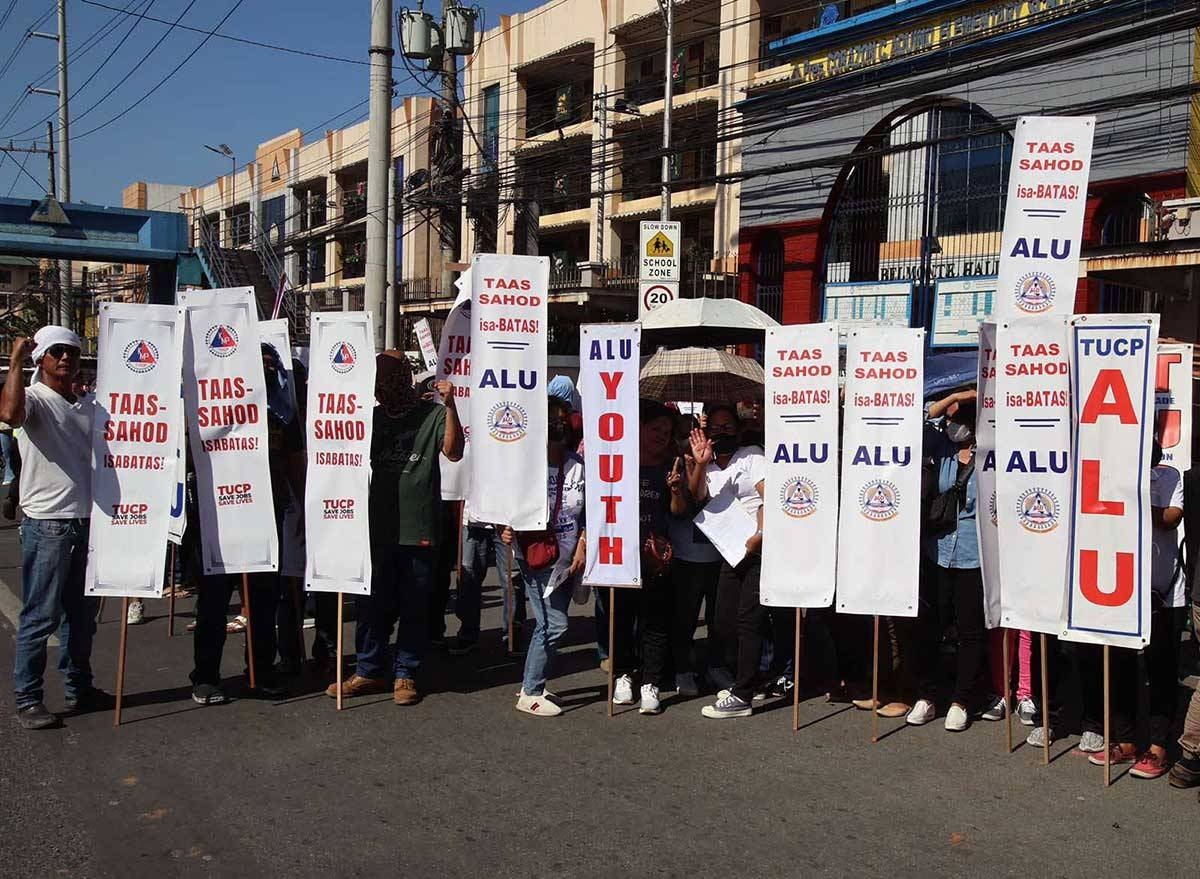The labor group coalition Nagkaisa has called on lawmakers not to yield to pressure from employers and to prioritize the demands of workers for a daily minimum wage increase of P150 or higher. In a statement, the coalition reminded legislators of the provision in the 1987 Constitution that emphasizes the “primacy of labor over capital” as a guiding principle in deciding on this contentious issue.
The coalition emphasized that their petition for a wage hike is not anti-business, including micro, small, and medium enterprises (MSMEs). They explained that any additional income in the pockets of workers is returned to the economy through consumption in small businesses, unlike the huge profits of businesses that often go towards extravagant expenses of capital owners. They argued that a wage increase has a more positive impact on the entire economy compared to if the majority of workers remain impoverished, as it benefits both the formal sector and the self-reliance in the informal economy.
On Wednesday, Nagkakaisa, along with several other labor unions, staged a protest rally outside the House of Representatives but were quickly turned away by the police.
However, the proposed P100 minimum daily wage hike faces opposition from the Financial Executives Institute of the Philippines (Finex). Finex expressed concerns that such a wage hike could harm labor market conditions by tightening available funds and discouraging investments due to policy uncertainty in regard to wage-setting.
The Senate recently approved a P100 minimum wage increase for all private sector workers, disregarding claims by businesses and analysts that it would have an adverse economic impact. If the measure becomes law, it will be the first legislated wage hike since 1989 when the country shifted to setting minimum wages via regional tripartite boards.
Socioeconomic Planning Secretary Arsenio Balisacan warned that this wage hike could affect the recent gains in the unemployment rate, potentially leading to an increase of 0.2 to 0.7 percentage points and resulting in an additional 100,000 to 340,000 unemployed people. The unemployment rate in December last year reached its lowest level since 2005, standing at 3.1 percent, with full-year unemployment at 4.3 percent, down from 5.4 percent in 2022.
Finex argued that the existing regional wage boards are a more appropriate mechanism for wage-setting as they consider multiple factors and balance the interests of both employers and workers. They also cautioned that the wage hike could lead to higher inflation, prompting companies to raise prices to offset their expenses. This, in turn, could result in additional calls for wage hikes and negatively impact small and medium enterprises (SMEs) that are still struggling to recover from the effects of the pandemic.
In response to these concerns, Finex suggested that legislators explore other mechanisms for increasing the purchasing power of workers, such as reducing tariffs and increasing or removing quotas on food imports.
House Deputy Majority Leader and Mandaluyong Rep. Neptali “Boyet” Gonzales 2nd urged lawmakers to strike a balance between the interests of workers and employers, cautioning against giving workers excessive hope that may not be fulfilled. The House Committee on Labor and Employment has begun its hearings on the proposed legislated wage hike.
In conclusion, the labor coalition Nagkaisa is urging lawmakers to prioritize workers’ demands for a minimum wage increase. While there are concerns about the potential impact on labor market conditions and small businesses, the coalition argues that a wage increase will have a more positive impact on the overall economy. It is now up to legislators to carefully consider the various perspectives and strike a balance that benefits both workers and employers.







